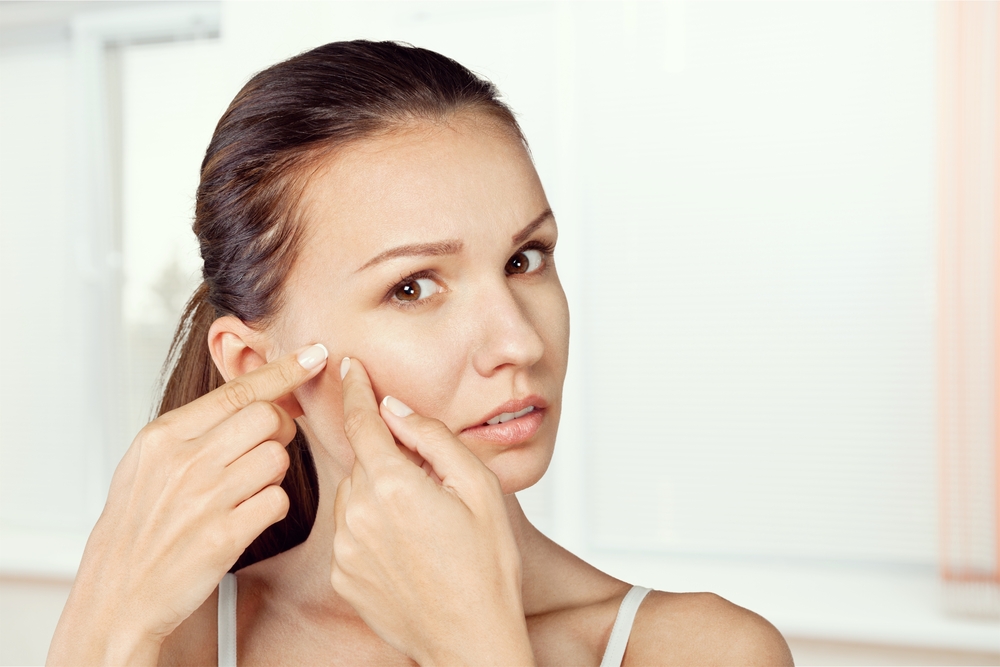Hormones and Adult Acne

Nobody enjoys acne. It is the bane of many people’s teenage years and part of why many of us don’t miss those days. The potential for permanent marks on our skin and unsightly blemishes regularly is enough to damage anyone’s self-esteem, but we grow out of it. Well, most of us grow out of one kind of it, but it doesn’t protect us from adult acne. Adult acne can come from any number of sources though one of the most common forms, at least for women, is hormonal adult acne. Breakouts become tied to fluctuations in hormones in the body and this can in turn make the acne only slightly less annoying than it was when you were a teenager depending on the stage of your life you find yourself in. We’re going to take a closer look at the interplay between hormones and adult acne so that you can plan or have a better grasp of why you might be experiencing breakouts now despite no longer being a teen.
Acne, Naturally
Teenagers most common suffer from bacterial acne thanks to the skin being overactive in producing oils for many teens. This creates an environment in which the bacteria responsible for acne thrive. Adults who have long since learned how to care for their skin properly are necessarily more frustrated when a breakout starts. Acne linked to hormonal changes frequently manifests for women around their period when hormone levels are fluctuating the most. These breakouts are, mercifully, seldom as extensive as the ones that teens experience. Hormonal adult acne often appears closer to the jawline and lower cheeks rather than anywhere. This is only a general trend though. You can’t really control a natural cycle, but you can work to keep your skin healthy if your breakouts tend to follow this pattern. Proper care can help reduce the length of such breakouts even if it can’t entirely prevent them.
Life’s Changes
Women are also likely to experience hormonal acne when pregnant or entering menopause. These each represent larger changes to the hormonal composition of their bodies. Pregnancy has a particularly annoying potential for hormonal acne thanks to the continual shifts going on in the body. Spikes in hormonal activity can easily cause a breakout, but it remains relatively restricted in a location typically like all forms of hormonal acne. Menopause is another large shift in the body, and the decline in the availability of some hormones is what causes the acne in this case. Those dealing with either of these possible sources of hormonal acne don’t need to worry though. Most of the time the breakouts stop once your body has returned to a stable area for long enough and your skin will remain easy to care for despite this problem. You can find some topical drugs to help with such breakouts, but pregnant women should make sure they’re safe for use.
Stressed Outbreak
Hormones can shift from causes other than changes that naturally occur in the body. Men and women are both susceptible to the effects of stress. Sustained, higher levels of stress shift the hormones in your body just as readily. This can quickly lead to a breakout. The biggest issue here is that this often leads to hybrid outbreaks that are a combination of hormonal changes and stimulation of oil production by the stress hormones. Stress-induced acne is typically far more stubborn than hormonal acne linked to cycles and pregnancy. Not only does the sufferer need to be dealing with whatever is already stressing them, but acne adds an extra layer of stress and potentially pain that doesn’t help the matter at all. You should see a dermatologist for adult acne regardless of source, but you should especially talk to one if you’re experiencing a breakout while your life has been particularly stressful.
Hormones and acne share an intimate link. This is why no one should judge anyone for having acne. Bacteria from “unclean” skin isn’t the only potential cause and for some people with a family history even habitually cared for skin can have an outbreak. Those dealing with adult acne should consider when they are having outbreaks to determine if there is a link to hormonal changes. This can help you figure out the best way to confront and contain the problem regardless of how lasting the issue may be.

